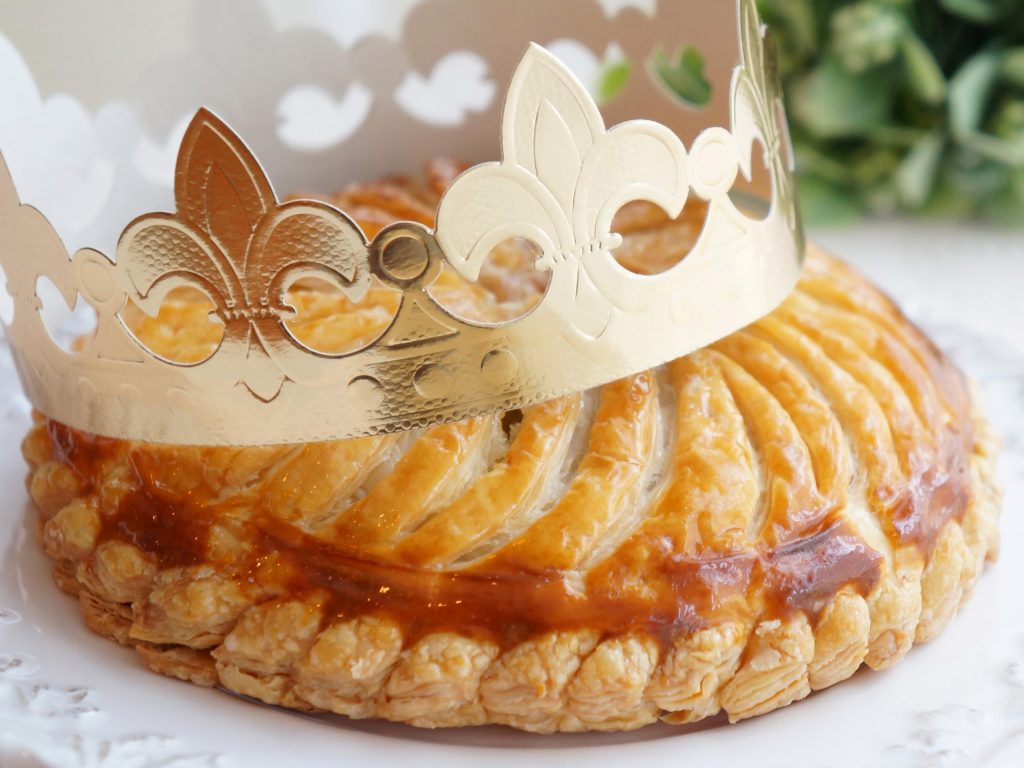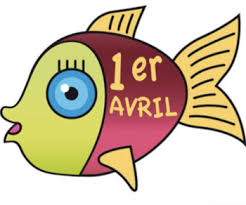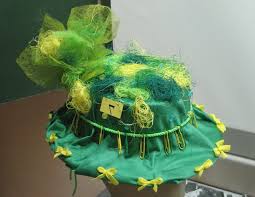Premium Theme by UXbarn.
Blog
- 9 January 2024
- By Britta Sedemund
- 0 Comment
Calendar of celebrations
France has a large share of popular annual traditions, special days and national celebrations – and that almost every month! Some are Public Holidays (11 public holidays a year!) and some are not holidays at all but treated as special days with friends and family, days when traditions are held dear. Those celebrations can be of religious kind, civil and commemorative.
Some dates are fixed (for example the 1st of May) and celebrated the same date each year and others vary depending on the celebration and what is being celebrated.
To understand those celebrations and holidays, we compiled a calendar for you, so you know what to expect and how to prepare!
Wishing you a nice reading, and great moments of celebration!
January
January 1st – New Year’s Day
The night to the first of January you will celebrate all night long! Sound and light shows are sometimes projected, public fireworks do take place (but no private firework is permitted) and at 8pm of the 1st the president of the French republic addresses the people of France with a presidential greeting on television.
January 6th « Galette du Roi »
The galette de roi is a scrumptious-looking cake, usually topped with a golden paper crown, to be found in your local boulangerie, pâtisserie or supermarché. It’s flaky, sweet and best served when warm, straight out of the oven.
But the pleasure brought by a galette des rois isn’t only due to its delicious taste – it’s also the anticipation of wondering whether you will be the lucky one to discover la fève, a tiny charm, buried inside one of the slices. If you are, you’re “king for a day” and take your place in a 700-year old French tradition.
Traditionally, it’s served on January 6th – the 12th day of Christmas – to celebrate the Epiphany, a religious feast day commemorating the arrival of the Three Kings to the manger where Jesus was born. Today, it’s eaten throughout the month of January and is simply a festive way to celebrate the new year with family and friends, regardless of religious background.
February
February 2nd – La chandeleur: Crêpes Day
In France, the month of February starts with the celebration of Candlemas – la Chandeleur, 40 days after Christmas.
This religious celebration recalls the Presentation of Jesus to the Temple, a decisive event that happened during the early years of Jesus and is described in the Bible (Gospel of Luke chapter 2 verses 22-40).
Today, for young and old alike, Chandeleur is above all known as Crêpes Day. Generations have kept alive a collection of traditions and customs around the making of crêpes. For instance, crêpes must be eaten only after eight in the evening. If the cook can flip a crêpe while holding a gold coin in the other hand, his household will enjoy prosperity throughout the coming year.
February 14th – Saint Valentine’s Day
As in many countries also in France this is the day for love and people in love. However, the French celebration is only one of love, not of friendship. Valentine’s day in France is celebrated a bit like it is in the rest of the world – chocolates, roses, jewels for the wealthiest… a romantic restaurant or evening…
February – Le mardi gras and Carnival
Literally mardi gras is translated such as « fat Tuesday » which refers to eating richer, fatty foods before the ritual fasting of the Lent.
In France, this festive season comes with sumptuous public celebrations or parades (‘carnavals’) which take place in many French towns and schools
March/April
Easter
Easter is always celebrated on the Sunday after the first full moon in spring. It is the most important feast of religious origin in France, the resurrection of Christ. In France, Easter Monday (the Monday following Sunday) is a public holiday.
Traditionally an “egg hunt“ is carefully orchestrated by parents and so awaited by children. A meal with an unbeatable leg of lamb is part of the tradition.
April 1st – Poisson d’avril
April Fools’ Day is best-known for the “poisson d’avril” (April Fish), one of the French customs that dates back to 1564. Not only does this delightful and uniquely French tradition see young children pranking adults by sticking a paper fish onto their back, they also dash away swiftly and yell “poisson d’avril!”
May
May 1st – La fete du travail
Lily of the Valley is the official May day flower and Labor Day. In France, lily of the valley (or muguet in French) has been given as a gift for centuries. Legend has it that the custom started on May 1, 1561 when King Charles IX received a sprig of the tiny flower as a token of good luck. The King liked the idea so much that he decided to start a tradition. From that day forward on the first of May, he presented a bouquet of lilies of the valley to each of the ladies of his court. And thus began in France the Fête du Muguet, otherwise known as May Day.
It is also a day of action consisting of protests, marches, and demonstrations organized by trade unions
May 8th – Journée de la Victoire
Victory Day marks the formal acceptance by the Allies of Nazi Germany’s surrender in 1945. Many people attend parades and church services to celebrate the end of World War II and the freedom of France.
Last Sunday in May – Fête des mères
On Mother’s Day children honor their mothers and give little gifts to them, sometimes self-made and fabricated at school
Jour de l ’Ascension – Ascension Thursday
Held 40 days after Easter to commemorate Christ’s ascension to heaven. Note this is a changeable Public Holiday, depending on when Easter fells.
May – Nuits des Musées – European Night of Museums
All over France thousands of museums open their doors for one night in an exceptional free opening to the public on the Saturday closest to 18 May. Many of the venues put on music, theatre, games, films and cuisine to tempt the public to venture out in the dead of night and enjoy the collection in a way not normally available.
June
May or June – Lundi de Pentecôte – Whit Monday
The Lundi de Pentecôte is a religious celebration following Easter, since 2005, Whit Monday has also got controversial connotations in France. The French Government has indeed used this public holiday to create a new Solidarity Day for which people would work without being paid.
June 21st – Fête de la musique
For the last 38 years in France, the 21st June is not just the longest day of the year but also the day of the fête de la musique.
This “festival of music” is no ordinary festival. Created in France in 1982, it has been taken up by neighboring countries where it has been just as successful. Music takes over the city’s streets, with live bands, singers, amateur musicians, drummers, DJs and so on scattered throughout the city, expressing themselves through music and inviting the crowd to enjoy themselves.
3rd Sunday in June – Fete de Père
On Father’s Day children give little gifts to their fathers – this is the day when the fathers get honored.
July
July 14st – la Fete Nationale
Since 1880 the French Republic has celebrated his national day, also called Bastille day. The festivities begin in the morning, with the traditional military parade on the Avenue des Champs Elysée’s; It is the anniversary of Storming of the Bastille on 14 July 1789,a turning point of the French Revolution. Military parades and popular balls in all cities are organized and fireworks are being shot all over the country.
Mid July to End of August – Paris Plage
Every summer, the Seine riverbanks and the Villette canal basin turn into a summer beach resort. Parisians and visitors are offered free places to relax and take advantage of activities during the hot summer days.
August
August in general
Parisians typically escape from mid-July to the End of August to their country houses. Tourists outnumber the Parisians! Do not be surprised, if your favorite restaurant or boulangerie is closed. But: less noise and traffic, less cuing, Parking everywhere etc.
August 15th – Fête de l’Assomption
On August 15 parades and processions take place in memory of the ascent of the Blessed Virgin to heaven – it is a religious holiday.
September
Beginning of September – la Rentrée scolaire
Back to school is the time when students start a new school year and resume classes at school. But this period is not only referring to the return to school, but in general defines a busy period when everybody is back from summer vacation and life starts to get pretty busy again.
Third weekend in September – journée de patrimoine
Those are the European Heritage Days, when special monuments that are normally closed to the public are open and welcome visitors. This could include chateaux, private mansions, places of worship, and courthouses who open their doors to the public
It is the perfect opportunity to get in behind closed doors, especially a location that holds a special interest or meaning to you. In Paris, for example, the Elysee Palace (home of the President), the Luxembourg Palace (Home of the French Senate), and the Grand Rex movie theatre open certain areas for the public to see.
October
First Saturday of October – Nuit blanche
As the days shorten and autumn heralds winter, the Nuit Blanche event in Paris invites you to see the city in a different way, at night, lit by moonlight, neons and other lights.
On the first Saturday in October, in all parts of the city, artists will be proposing installations, exhibitions, concerts performances, trails, staged scene sets and creations that explore all facets of contemporary art and offer a new view of the city.
Public transport stays open all night so that spectators can design their own route among the dozens of avant-garde projects of international artists. The Nuit Blanche was first organized in 2002, and, like the Fête de la Musique, it has spread around the world to other cities in France and other European capitals, a proof of its popularity and relevance today
November
November 1st – La Toussaint
A religious holiday when people go to the cemeteries to flourish the graves with chrysanthemums or other flowers. It is a public holiday in France and a chance for families to come together and honor their dearly departed.
November 11th – Jour du Souvenir
This national holiday celebrates the end of World War I in Europe, many towns in France will hold services of remembrance.
November 25th – Fête des Catherinettes
25 year old girls who have not yet married wear a green and yellow hat. It is a tradition that is less and less celebrated: some people still write a postcard to the Catherinettes, in smaller villages festivities are organized.
3rd Thursday in November – Beaujolais Nouveau
The arrival of the first AOC (“appellation d’origine contrôlée”) wines of the year. The whole of France celebrates the Beaujolais Nouveau which, though it may not be a great wine, provides an occasion to celebrate with friends in cafés and bistros.
December
December 6th
The custom is that on the night of December the 5th, children place their shoes beside the fireplace or at the door. By morning, their little shoes are filled with chocolates, candies, nuts and fruits. In some families the shoes need to be cleaned before Nicolaus is filling them.
December 25th – Noël
This national holiday begins the evening before with the Réveillon de Noël (Christmas Eve) meal and a visit by le Père Noël (Santa Claus) during the night who leaves presents under the Christmas tree – though he apparently has been known to smack naughty children in France.
December 31st – la Saint Sylvestre
The feast day of Saint Sylvestre includes a festive celebration spent with friends at home or in a favourite restaurant. A kiss under the mistletoe is shared at the stroke of midnight.
Natalie and Britta are wishing you a wonderful New Year 2024 filled with great french celebrations!
About Britta Sedemund



